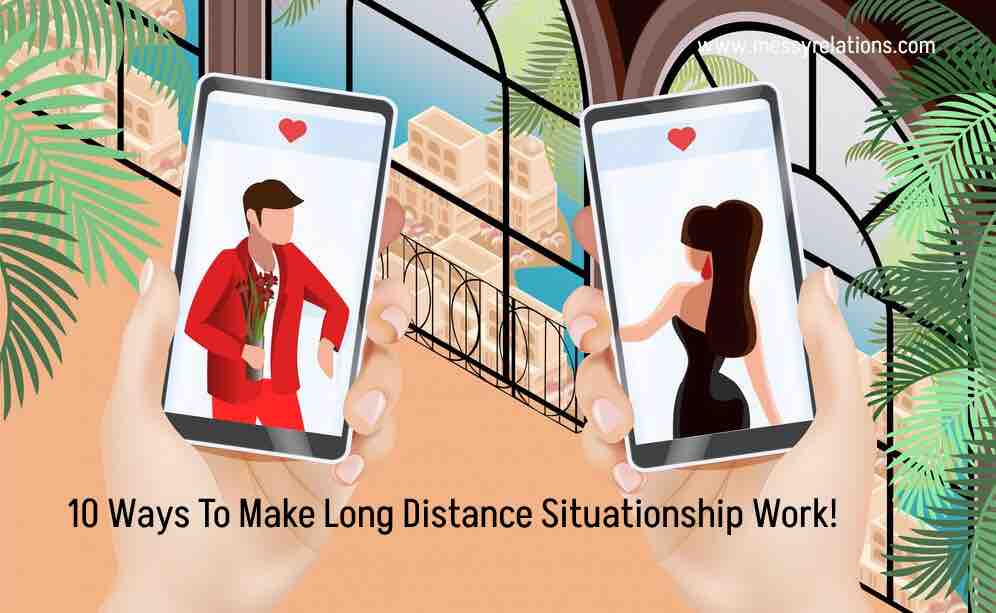In any relationship, it’s essential to maintain a healthy balance of love, respect, and mutual understanding. However, some partners exhibit controlling behavior, which can lead to emotional distress and damage the dynamics of the relationship. Identifying the signs of a controlling partner is crucial for maintaining your emotional well-being and making informed decisions about your future. In this article, we’ll explore 20 signs that may indicate you have a controlling partner, empowering you to take appropriate action for a happier and healthier relationship.
Signs Proving You Have a Controlling Partner
1. Constant Monitoring and Jealousy
A controlling partner often exhibits excessive jealousy and seeks to monitor your actions constantly. They may scrutinize your friendships, social media activity, and question your every move, causing you to feel suffocated and restricted in your personal life. They may obsessively check your activities, invade your privacy, and display possessiveness, causing you to feel suffocated and restricted. The partner’s insecurity and lack of trust can erode the foundation of the relationship, leading to emotional distress and isolation from friends and family. Identifying these red flags is crucial to address the controlling behavior and foster a healthier, more balanced relationship.
2. Isolation from Friends and Family
Controlling partners may try to isolate you from your support network, including friends and family. They may discourage you from spending time with loved ones, making you increasingly reliant on them for emotional support. They may manipulate you into distancing yourself from loved ones, cutting off your support network. This control tactic aims to increase their dominance and limit your access to outside perspectives, making you more dependent on them. Recognizing this behavior is vital to preserve your relationships and emotional well-being, as a healthy partnership should encourage maintaining connections with those you care about.
3. Dictating Your Appearance and Behavior
If your partner insists on controlling your appearance, such as the way you dress or style your hair, it could be a sign of their need for dominance and insecurity. They may criticize your choices in clothing, hairstyle, or even your mannerisms, leaving you feeling judged and disempowered. This behavior is a clear indication of their need to mold you into their ideal image, eroding your sense of self. Recognizing this sign is crucial for maintaining your individuality and fostering a relationship built on mutual respect and acceptance.
4.Controlling Finances
A controlling partner can behave in irrational manner and can be in control of all your finances.They may limit your access to money, scrutinize your expenses, or demand justification for every purchase, leaving you financially dependent and disempowered. This behavior can lead to feelings of insecurity and lack of autonomy. In a healthy relationship, financial decisions should be made jointly, with both partners having equal say and transparency about financial matters.
5. Overemphasis on Their Opinions
A controlling partner often expects you to prioritize their opinions and decisions above your own, leaving little room for compromise or independent thought. They may assert their views as superior, leaving little room for compromise or open discussions. This behavior creates an imbalanced dynamic, where your thoughts and feelings are sidelined. In a healthy relationship, both partners should respect each other’s perspectives and engage in constructive communication, fostering a sense of equality and understanding.
6. Frequent Blame and Gaslighting
Controlling partners frequently employ gaslighting techniques, making you doubt your own perceptions and feelings. They may shift blame onto you for problems in the relationship, causing emotional confusion and self-doubt. Gaslighting leads to emotional confusion and undermines your confidence. This behavior is a warning sign of an unhealthy relationship. In a loving partnership, both individuals should take responsibility for their actions and communicate openly, without resorting to manipulation or deceit.
7. Regular Checking-In
If your partner regularly calls or texts you to check your whereabouts and activities, it may indicate a controlling nature, as they are seeking to maintain constant control over your life. They may incessantly call or text to monitor your whereabouts and activities, eroding your sense of privacy and independence. The behaviour of controlling partner is such that they would want to keep check on all your matters. In a healthy relationship, both partners respect each other’s personal space and maintain open communication without the need for constant surveillance.
8. Emotional Manipulation
They use tactics like guilt-tripping, fear, or threats to manipulate your emotions and actions. This behavior aims to control your decisions and bend you to their will, eroding your sense of self and autonomy. Recognizing emotional manipulation is crucial for protecting your emotional well-being and establishing healthy boundaries in the relationship. In a loving partnership, both individuals communicate openly and honestly without resorting to manipulation or coercion.
9. Limited Independence
A controlling partner may discourage or prevent you from doing a lot of things. You would feel as your impendence is being compromised in one or other sense.
10. Lack of Privacy
Your partner might invade your privacy by going through your phone, emails, or personal belongings without permission, leading to a breach of trust and feeling like you are under constant surveillance.
11. Extreme Mood Swings
A controlling partner may display unpredictable mood swings and this can cause trouble and problems in your life too. Their behaviour is irrational at times and they would not listen to anyone in such cases when they suffer from mood swings.
12. Imposing Ultimatums
A sign of a controlling partner is their frequent use of ultimatums to get their way, leaving you feeling trapped and cornered with no choice but to conform.
13. Making Decisions Without Consultation
Controlling partners often make significant life decisions without consulting or considering your feelings, leaving you feeling disregarded and unimportant.
14. Controlling Partner in Public
In public settings, a controlling partner may try to control your behavior or reactions, fearing that you might embarrass or contradict them.
15. Jeopardizing Your Independence
Controlling partners may discourage you from seeking further education, career advancements, or financial independence to maintain their dominance in the relationship.
16. Constant Criticism
A controlling partner may criticize your appearance, abilities, or achievements, eroding your self-esteem and confidence over time.
17. Threatening Self-Harm or Suicide
Some controlling partners resort to emotional blackmail by threatening self-harm or suicide if you attempt to leave the relationship, making you feel guilty and trapped.
18. Excessive Demands for Intimacy
The demand for excessive physical and emotional intimacy is high from a controlling partner. In such cases they ignore your boundaries and disregard your comfort levels.
19. Refusal to Accept Boundaries
Lastly, a controlling partner consistently disrespects your personal boundaries, expecting you to share every aspect of your life with them, while they withhold information about themselves.
Recognizing the signs of a controlling partner is essential for your emotional and mental well-being. If you find yourself in a relationship with such a partner, remember that you deserve respect, trust, and independence. Don’t hesitate to seek support from friends, family, or professional counselors to help navigate the situation and consider your options moving forward. Remember, a healthy relationship is built on trust, communication, and mutual respect, and you have the right to be in a fulfilling and balanced partnership.




